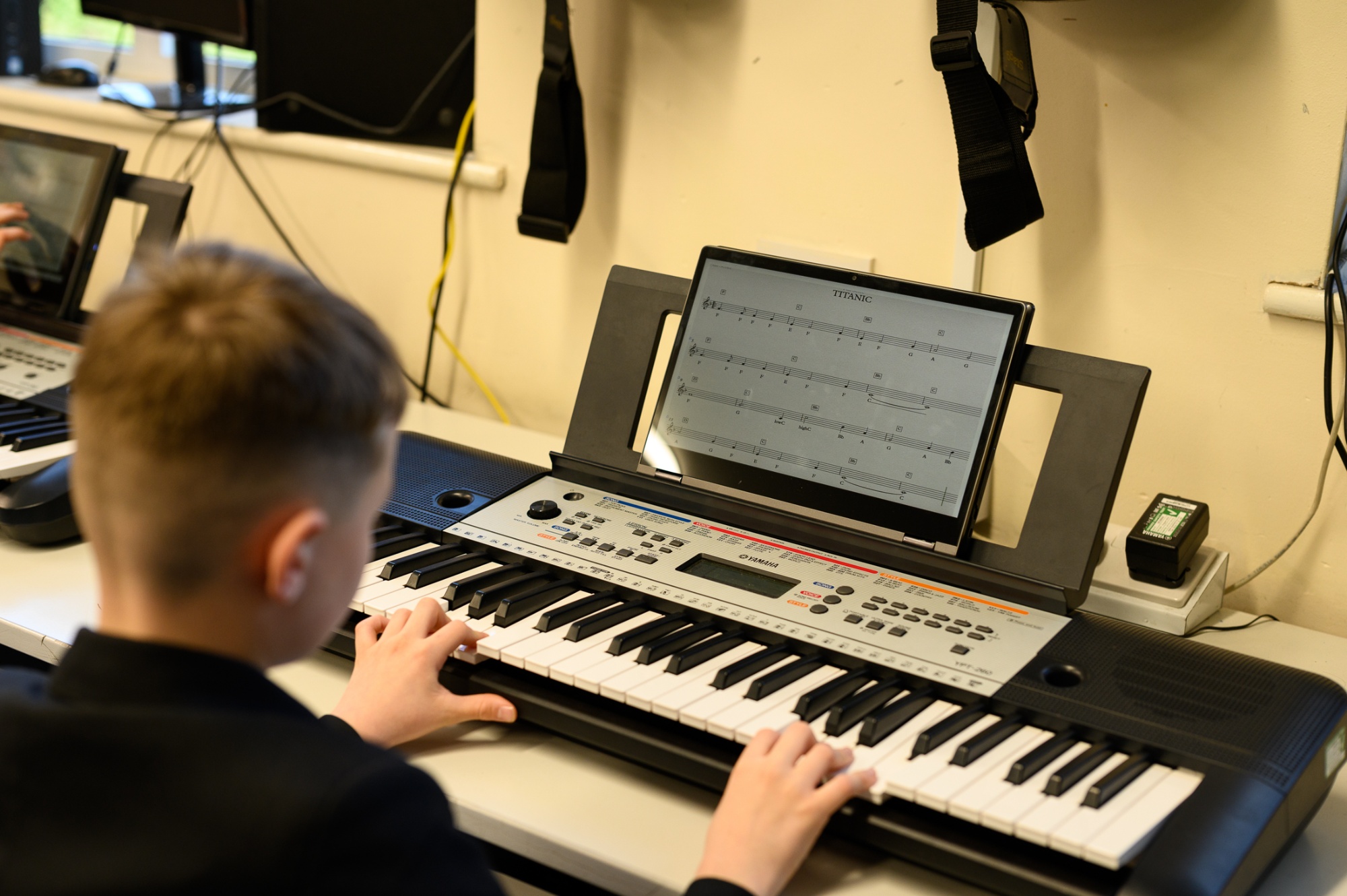Hospitality and Catering KS4 | Years 10 & 11
Intent
The need to eat healthily can’t be stressed enough. By giving students a broad understanding of different cultures, catering industry standards, methods and processes, a curriculum in Catering, Hospitality and Food delivers skills that are needed to be self-sufficient, healthy and independent when working with food and developing this lifelong skill.
Ethos
This course not only prepares students for some important life skills but also teaches students:
- How to cook, serve and store food safely and hygienically in line with industry standards and government legislation.
- Understanding the link between the foods and ingredients we eat, and how the function of the nutrients they contain and perform in the body.
- How special dietary needs can affect the choices people make when selecting foods, and the symptoms caused by poor dietary choices.
- This course encourages students to challenge themselves to prepare and serve food to Hospitality and Catering industry standards. Using specialist equipment and technical knowledge to create quality dishes and products.
- Students will be encouraged to experience the industry, where possible, in the school environment processing for events.
Careers in Hospitality and Catering
The catering, hospitality, and food industry offers a wide range of exciting career paths. Here are some potential career options for students who pursue this subject:
- Chef: Work in restaurants, hotels, or catering companies, creating and preparing delicious meals.
- Restaurant Manager: Oversee the operations of a restaurant, including staff management, menu planning, and financial control.
- Food Stylist: Create visually appealing food presentations for photography, advertising, and television.
- Food Critic: Evaluate restaurants and food products, sharing insights with the public.
- Nutritionist: Provide dietary advice and create personalised meal plans.
- Food Scientist: Research and develop new food products and ingredients.
- Hotel Manager: Manage the overall operations of a hotel, including guest services, housekeeping, and front desk.
- Event Planner: Organise and coordinate events, such as weddings, corporate functions, and conferences.
- Food Blogger or Vlogger: Share culinary experiences and recipes through online platforms.
- Food Safety Inspector: Ensure compliance with food safety regulations in restaurants and food production facilities.
By studying Catering, Hospitality, and Food at The Cottesloe School, students will gain the knowledge, skills, and confidence to pursue a fulfilling career in this dynamic and rewarding industry.
Subject Content
This vocational award in Hospitality and Catering supports our students to learn about this industry and the potential it can offer them for their careers or further studies.
It is a great foundation for the future and provides opportunities to develop a range of specialist and general skills that would support their progression to employment.
The course has a good balance of building on the skills of previous years and encouraging learners to take on new skills and challenges, while also gaining valuable knowledge and understanding of the Hospitality and Catering Industry.
During Years 10 and 11, students also have the opportunity and are encouraged to experience a ‘real work environment’ by catering for public events within the school.
Students are expected to prepare and serve dishes from all aspects of dietary needs, addressing the vegetarian, religious, cultural, health and social needs of potential customers.
Assessment Details
The assessment requirements for this GCSE qualification are split into two units and are assessed in Year 11. However, there will be regular knowledge and skills assessments through Years 10 and 11. These will include 2 ‘formal’ mock examinations in October/November and January/February.
GCSE Assessment (in year 11)
Unit 1: The Hospitality & Catering Industry
A written examination, 1 hour and 20 minutes in duration. This makes up 40% of the overall GCSE grade. Questions will be short and extended answers, based on applied situations. Students will be shown visual materials to help them respond to questions.
Unit 2: Hospitality & Catering in Action
This is an NEA (Non Examined Assessment) and makes up the ‘coursework’ element of the course. An assignment brief will be provided by WJEC which will include a scenario and several tasks available to choose from and be assessed in a twelve-hour controlled assessment in school.
In this unit, students will gain knowledge and understanding of the importance of nutrition and how to plan nutritious menus. They will learn the skills needed to prepare, cook and present dishes. They will also learn how to review their work effectively. This unit draws upon the knowledge gained in Unit 1. This makes up 60% of the overall GCSE grade.
Grading
Vocational Awards are awarded on an 8-point scale: Level 2 Distinction*, Level 2 Distinction, Level 2 Merit, Level 2 Pass, Level 1 Distinction*, Level 1 Distinction, Level 1 Merit, Level 1 Pass.
Candidates who do not achieve the uniform marks required to achieve a Level 1 Pass will have their achievement recorded as U (unclassified) and will not receive a certificate.
Additional Equipment Recommended
- Measuring spoons and weighing scales for ingredients (at home).
What can I do to support my child at home?
- Write organised theory notes on the topics to help support students in the written assessments.
- Create notes on different recipes and examples of the dishes they have created.
- Demonstrate the ability to be able to work independently.
- Know how to show creative thinking skills.
- Demonstrate an understanding of the quality and standard of food and service demanded by the Catering and Hospitality industry.
- Demonstrate knowledge by selecting appropriate equipment, ingredients and processes.
- Know how to apply principles of nutrition and healthy living/eating habits.
- Demonstrate skills in food preparation and cooking techniques.
- Consider the user/consumer when designing/creating products.
- Be able to evaluate their own work and the work of others in a local or national/international context.
- Be able to plan out menus and methods, prior to applying practical skills.
- Demonstrate independence and resilience when carrying out practical activities.
- Prepare, serve and store food hygienically in line with government legislation.
- Provide access to the internet and a device to help with homework on Google Classroom
Websites
- https://www.foodafactoflife.org.uk/11-14-years
- https://www.bbc.co.uk/bitesize/subjects/z94dxnb
- www.foodsafety.gov
- http://homefoodsafety.org/app
- www.nutrition.org.uk
- www.food4life.org.uk/key-stage-four/health-and-nutrition/nutritional-requirements
- www.gdalabel.org.uk/gda/gda_values.aspx
Books
Teaching Staff
Head of Design and Technology
Mr Poote - jpoote@cottesloe.bucks.sch.uk
Teacher of Hospitality and Catering
Dr Jera - ljera@cottesloe.bucks.sch.uk






